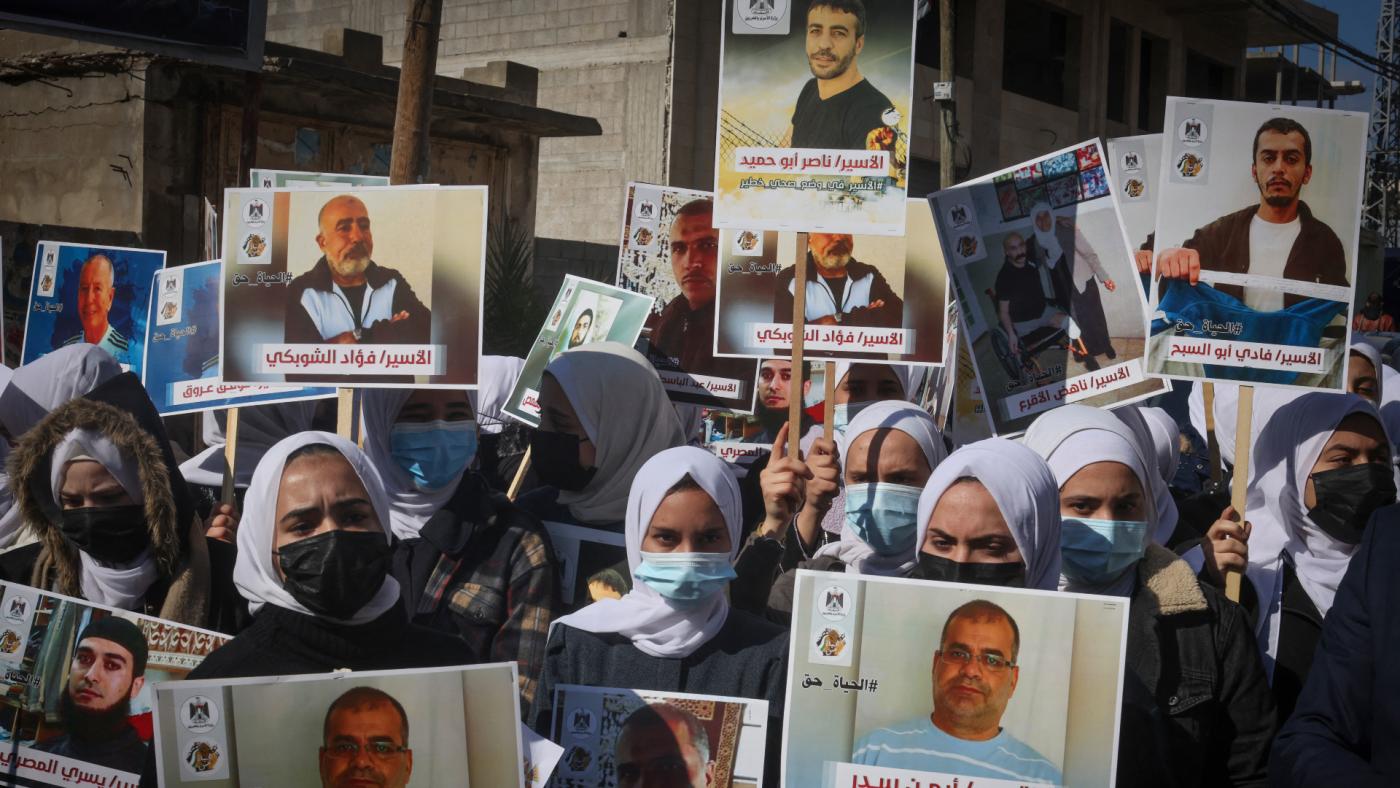
Palestinian political prisoners in jails across Israel have begun a series of mass resistance actions to protest against punitive measures imposed by the Zionist state’s new far-right government.
On Tuesday, prisoners launched a campaign in the infamous Nafha prison, in Naqab (Negev) desert in the southeast.
On Wednesday they were joined by Palestinian political prisoners in the jails of Rimon, Ofer, Megiddo, Gilboa and Negev.
The resistance campaign will culminate in a hunger strike at the start of Ramadan in late March, prisoners say.
“Our only demand is freedom,” the Supreme Emergency Committee for Prisoners said in a statement on Tuesday. “Everyone must get our message and hear our voice, for we can no longer tolerate the violations being committed against us day and night.
“The amount of aggression we have been facing since the start of the year requires all of our people to support us with all means possible.”
‘Attack on their lives’
Security Minister Itamar Ben-Gvir wasted no time delivering on his plans to create harsher conditions for Palestinian prisoners in Israeli jails.
The Israel Prison Service (IPS) has begun moving inmates and transferring them between the 20 prisons used exclusively for Palestinian political prisoners.Approximately 140 Palestinian prisoners were transferred to Nafha in January. The prison is notorious for terrible living conditions, which prisoners describe as “inhumane”.
“The situation in prison over the last couple of weeks has been terrible. The transfer of these prisoners is an attack on their lives,” the commissioner of Palestinian prisoner affairs, Hassan Abid Rabbah, told Middle East Eye in January.
In early February, Ben-Gvir ordered the closure of Palestinian prisoner-run bakeries in the country’s jails.
Palestinian prisoners in Rimon and Ketziot security prisons operate in-house bakeries that provide bread to other inmates.
The move was criticised as vindictive by prisoners’ support groups.
Other punitive measures being discussed include limiting family visits, halting the sale of certain foods and items in the canteens, and restricting families from sending clothes to prisoners.
‘Hunger strike for freedom’
The resistance measures include disobeying prison guards and disrupting security checks.
In response, guards in Nafha cut off the hot water.
Prisoners are planning to start a “hunger strike for freedom” beginning on the first day of Ramadan, 22nd March.
Palestinians have undertaken hunger strikes since 1968 to fight issues such as solitary confinement, denial of family visits, inadequate medical treatment, and other degrading conditions.
Currently, Israeli prisons are home to 4,780 Palestinian political prisoners, including 160 children. All of them will be affected by Israel’s implementation of punitive measures.